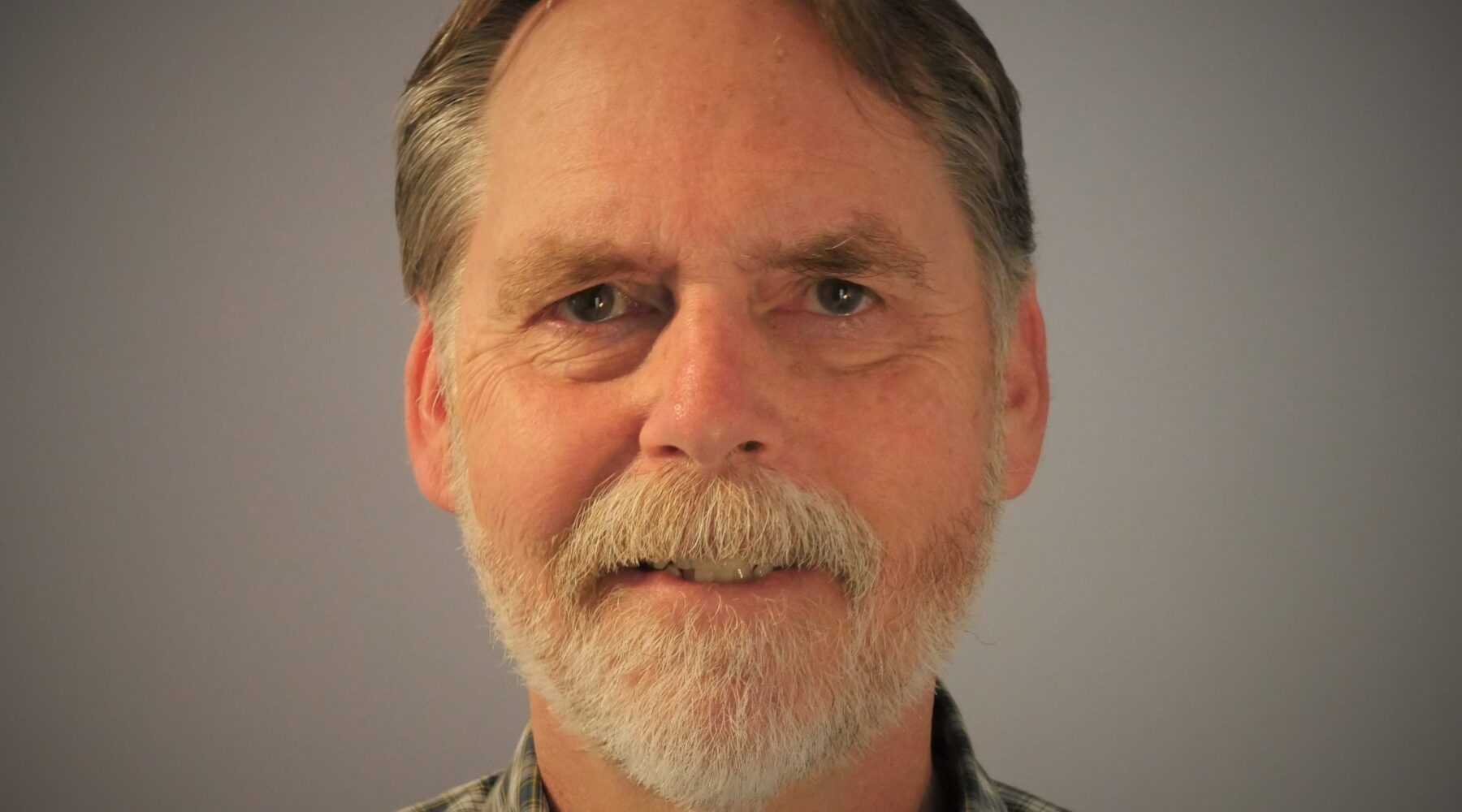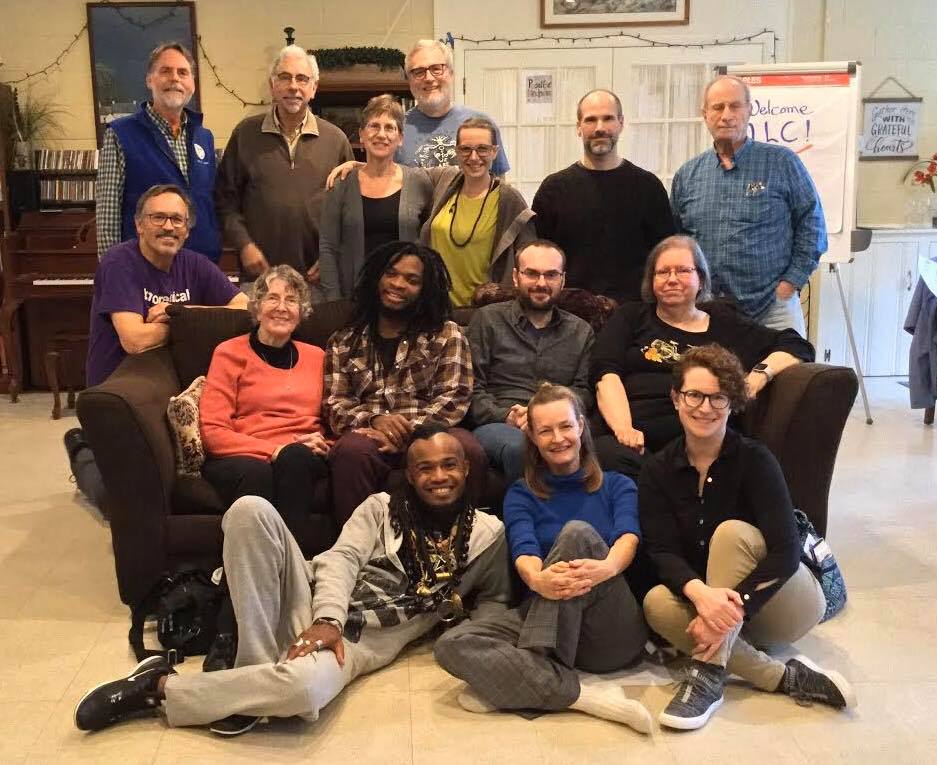
Bart Worden from the US: “humanists should take the lead in advocating for people over money”
#GlobalHumanismNow: an update from the American Ethical Union

#GlobalHumanismNow: an update from the American Ethical Union
#GlobalHumanismNow is a series of mini-interviews with our Members and Associates from all around the world where we ask them how they are coping with the global coronavirus emergency, to explain what initiatives they are taking, and to tell us how the global humanist community can support them.
All interviews are available here.
Today we speak with Bart Worden, Excecutive Director of the American Ethical Union.
Humanists International: Hi Bart, thank you for accepting our invitation. One month ago we received an update on the USA from Adriana Buenaventura Martinez, Director of the Hispanic American Freethinkers (HAFree). How is the situation in your country one month later?
 Bart: As of May 6, 2020 there have been 1,193,813 reported COVID-19 cases and 70,802 COVID-19 related deaths according to the Center for Disease Control.
Bart: As of May 6, 2020 there have been 1,193,813 reported COVID-19 cases and 70,802 COVID-19 related deaths according to the Center for Disease Control.
[UPDATE: As of 12 May, there are 1,298,287 confirmed cases and 78,652 deaths.]
The State of New York has accounted for 20,597 deaths, according to Governor Cuomo’s office with over 600 new cases reported on May 6th. It appears that New York is past its peak of COVID-19 infections and the rate of new cases in the United States is in decline. If, however, you remove New York cases from the picture, there is actually an increase in new cases as the coronavirus takes hold in other places in the country.
What is the most preoccupying aspect of the pandemic in the US?
The pre-existing racial and economic divides have been significantly exacerbated with people of color making up a disproportionate percentage of COVID-19 related fatalities, unemployment, food insecurity, and housing losses. Meanwhile, the majority of white, college educated individuals have maintained employment – primarily by working from home – and typically have the economic support of savings and ready credit to make ends meet.
Schools have been closed nationwide and have moved to education via the Internet. Most stores, restaurants, and non-essential services have been shuttered, and health care facilities have realigned their services to restrict care for other than COVID-19 related treatment. A number of states have relaxed, or are now considering relaxing, restrictions which many (and probably most) Americans believe is premature and dangerous.
How has the government responded to the crisis?
The United States seemed almost on the brink of a unified approach to responding to the coronavirus outbreak when the legislature passed the $2 trillion Coronavirus Aid, Relief, and Economic Security Act (aka “CARES Act”) but that did not last.
The President of the United States, Donald Trump, has done much to undermine effective responses and little or nothing to help. The President has left it to the states and municipalities to figure out how to respond to the pandemic and even encouraged competition in the procurement of protective equipment, ventilators, and testing services. That drove up the cost of the supplies and paved the way for unscrupulous vendors to take advantage of the desperation of beleaguered buyers.
Trump has also discouraged people from following the advice of scientists and medical professionals, and has instead touted all kinds of ridiculous ideas. The government’s responses to the situation have also deepened the political and social divisions in the United States as the money for recovery is siphoned off by businesses while children and families go hungry and front line workers in residential care facilities and meat packing plants are pressed to keep working in unsafe conditions. With the national elections on the near horizon, it remains to be seen whether the government will support fair and safe elections and, from what we have seen so far, it seems unlikely that there will be adequate support to make that a reality.
How has the crisis affected your organization and the individuals within it?

Bart with other Ethical Culture Leaders
The American Ethical Union is a federation of Ethical Culture/Ethical Humanist Societies in the United States.
Our member groups function as congregations that have traditionally met via regular face-to-face gatherings. By mid-March all of our groups had suspended in-person meetings, and almost all transitioned to meeting via Zoom or some other video conferencing platform. It took a few weeks but once our groups became familiar with the operation of the virtual meetings they mostly found that there was an increase in attendance and participation compared to pre-COVID-19 meetings.
As our membership is primarily college educated and working from home or older and retired, our communities have weathered the coronavirus pandemic with few casualties. Older adults living alone or in congregate care have expressed the most stress followed by families with school aged or younger children. Our member groups have responded by making numerous outreach calls, offering help with groceries and other items needed by people, and finding creative ways to engage with people while maintaining social distance. The increasing awareness of the toll the outbreak has taken on vulnerable populations has troubled our members as has the press to loosen restrictions before people feel it is safe to do so.
How is your organization responding to the emergency?
Our first response was to acknowledge the risks of the coronavirus outbreak and encourage everyone to follow the advice of medical professionals.
Next we with communicated with the leadership of our member organizations to learn how they were affected by the outbreak and hear what they felt was needed to help them manage during the crisis then fashioned a plan to respond to the needs that been expressed which included:
Do you want to add anything on the personal level?
I can’t say that I am in active distress as I hunker down in my home and keep away from public spaces. I’m an introvert and do most of my work from home, anyway, so what is so different? But there is a weight bearing down on me – a sense of dread mixed with frustration, longing, and worry that pulls me down during the day and wakes me up in the night. It probably should be utter panic, given that I read newspapers and look at social media. But for me the feeling is more ache than pain. As the virus spreads I hear more stories about people I know or knew, and heartbreaking accounts of families and friends who abide, helplessly, at a distance from their ill loved ones. As the stories compound and deepen I find myself frantic that so little is being done to address the catastrophe that is unfolding as the economy unravels while the safety net is in tatters.
How do you think we should face this emergency as humanists? Which humanist principles should we value most right now?
I believe humanists should take the lead in advocating for people over money. We should advocate for a worldwide approach to credit and debt. Let’s extend credit to EVERYONE and let everyone rack up debt in order to obtain the necessities of life. Let’s make sure that everyone has what they need for food, shelter, medical care and companionship and stop worrying about the cost. If all banks, stores, businesses, and individuals accept credit for all the goods and services people have requested of them we could keep more of the economy flowing and have a much more equitable distribution of resources. Once the economy is back up and running, forgive all the debt and take stock of where we are and where we need to go.
What kind of support do you need from the international community?
Unity in calling for our governments to put people over profits would be welcome, as would a commitment to advocate for equity in resource distribution.
 What is your message to humanists all around the world?
What is your message to humanists all around the world?
The coronavirus pandemic has brought home just how vulnerable human beings are. We need to keep that in mind as we fashion a new way forward. Let’s not accept a return to the previous status quo that was rife with inequity, short sightedness, and voracious consumption. Let’s chart a better future for all based on appreciate of the worth and dignity of each and all.
Thank you, Bart!
If you represent a Member or Associate of Humanists International and you want to participate in the #GlobalHumanismNow series, please contact us at [email protected]